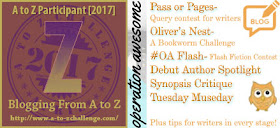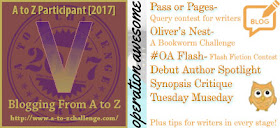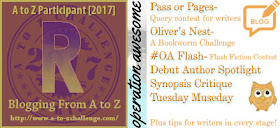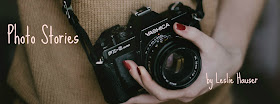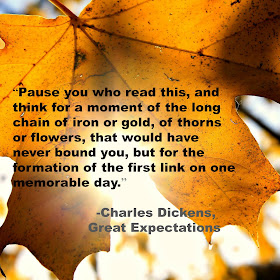The #AtoZChallenge 2017 Theme at Operation Awesome is the Publishing Journey.
Today's guest post is by Becca Puglisi.
Prioritizing the Writer’s Life via a Business Plan
If I could pick one word to describe how my writing career has turned out, it would probably be unexpected. I started in 2004, composing YA fiction. That was all I ever wanted to write. But when an opportunity arose in 2008 to start a blog with my critique partner and writing soul sister Angela Ackerman, I took the chance. It was the right choice, even though a big chunk of my writing time had to then be devoted to nonfiction, since this would be the focus of our blog. By 2011, our audience had exploded and they were clamoring for a published version of our content; in a very short period of time, I found myself a published nonfiction author. Six years and five books later, I’m not only a nonfiction author but also a speaker and writing coach¬—a happy evolution, but a far cry from where I once envisioned myself.
It’s been an exciting ride but also a crazy one as I’ve tried to figure out where my time and energy should be devoted along the way. This is a question many writers struggle with, particularly in the early years when they’re learning who they are, pinpointing what they want, and defining their personal brands. As your writing career progresses, there’s increased pressure to take on more responsibilities. You’re told to start a blog, get involved in social media, attend conferences, do school visits and book signings—all while honing your craft and writing that all-important next book. These are good ideas that can work toward your goal of becoming a career author. But you can’t possibly do everything. How do you decide where to focus?
When things got squirrely for Angela and me, we knew we needed a roadmap to keep us on track. For us, that ended up being a business plan. I highly recommend it for all writers looking to clarify their career path and direction.
By identifying our areas of focus, setting primary and secondary priorities, and scheduling deadlines for our goals, we had a clear view of where our priorities should lie during the year. And it made decision-making a whole lot easier.
For instance, when we created this plan for 2016, there were a few additional things we had wanted to accomplish. But once we established our areas of focus and started identifying our goals, we realized there simply wasn’t time for everything. So we pushed the less important items to the next year.
I was recently able to use our 2017 business plan to make a decision about speaking at a particular conference. I’ve done quite a few speaking engagements, but this one was an all-day gig, which I’d never done before. I had to really think about it because while I love to speak, and doing so fits perfectly into our Build Writing Coaches Persona area of focus, I was nervous about the time commitment. But I soon realized that this was too good an opportunity to pass up. It also forced me out of my box a little bit, which is almost always a good thing, so I agreed to do it.
These are just two examples of how I was able to use our plan to make decisions that would maximize reward while maintaining focus on what was important for our business. And, honestly, any writer can do this. Here’s how.
1. Formulate A Business Plan. It sounds a little scary, but it’s really pretty straightforward, as you can see in
this step-by-step post that Angela wrote for Jane Friedman’s blog. Creating a plan takes a lot of thinking, and staring out the window, and crossing things off and adding new items to your list. But eventually, you’ll end up with a clear picture of where your focus should be for the year.
2. Post It In A Prominent Spot. I have mine tacked to a bulletin board on my office wall. Whenever I receive a request, all I have to do is look up and be reminded of where my priorities should lie.
3. Ask Yourself Question #1: Does this request fit with my goals and areas of focus? If the answer is no, it’s likely that this particular job will not only take you away from where you want to be, it will steal time and energy from the projects that would have helped you accomplish your objectives.
4. Ask Yourself Question #2: Do I have time? Often, opportunities will come along that fit very well into your plan, but they’re time consuming, and saying yes means saying no to a higher priority item. Other times, that new opportunity aligns so perfectly with your business plan that it should become a top priority in place of something on your list.
Case in point from a few years ago: in the last quarter of 2014, Angela and I were on our way to accomplishing all of our goals when Lee Powell, the developer of Scrivener for Windows, contacted us about creating a software application showcasing all of our thesauri and many other tools and resources. Now we found ourselves facing a new opportunity that would require a huge time commitment just to do the research on the front end. But this opportunity tied directly into our second and third areas of focus and looked like it could be the next logical step for our business. So we pushed back the deadlines on the remainder of our goals for that year and even sidelined a few so we could pursue it. As a result, we’re now able to offer writers a comprehensive writing website—
One Stop For Writers—in addition to our published books.
5. Don’t Be Afraid To Say Yes. It’s easy to use a business plan as a crutch—an excuse for not taking on an opportunity that scares us or is outside of our comfort zone. Remember that a business plan is meant to be a guideline, not something written in stone. If something comes up that aligns well with your goals and areas of focus, jump on that bandwagon. I can’t tell you how many times in my career it has made more sense for me to say no to potential opportunities. But saying yes was almost always the right answer, and I benefited every time.
6. Don’t Be Afraid To Say No. The writing community is a social and collaborative one, largely because the author’s journey can be so difficult. As a result, we often find ourselves in the position of doing things for friends, acquaintances, and strangers out of a sense of obligation. Never forget that while there are many personal and social benefits to being an author, writing is a business. As a creative,
your time is an expense that must be responsibly doled out and carefully accounted for. So if you want to achieve your goals, learn to say no to the things that are counter-productive.
As your writing career progresses and more decisions have to be made, it can be hard to know when an opportunity should be pursued and when it’s simply going to be a distraction. A business plan is a great tool to help you make wise decisions that will keep you on track toward meeting your goals.
BIO:
Becca Puglisi is an international speaker, writing coach, and bestselling author of
The Emotion Thesaurus and its sequels. Her books are available in five languages, are sourced by US universities, and are used by novelists, screenwriters, editors, and psychologists around the world. She is passionate about learning and sharing her knowledge with others through her
Writers Helping Writers blog and via
One Stop For Writers—a powerhouse online library created to help writers elevate their storytelling. You can find Becca online at both of these spots, as well as on
Facebook and
Twitter.

